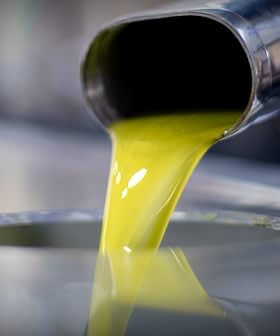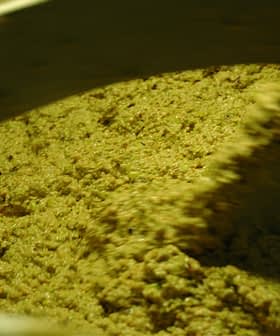 41.2K reads
41.2K readsHealth
Maybe You Shouldn't Do Something About That Cough
Scientists have discovered that the tingling sensation caused by high-quality extra-virgin olive oil in the back of the throat is due to a specific flavor-sensing molecule named TRPA1, which is found in the throat and nose but not the mouth. This finding not only supports the traditional method of olive oil tasting, but also has potential implications for the development of anti-inflammatory drugs.
For years extra-virgin olive oil has been tasted and judged on its ability to produce a tingling or burning sensation in the back of the throat, the belief being that the more you cough, the better the quality of the oil. Now scientists have come up with evidence to support this method of tasting and to explain why it works.
In a paper published today in the Journal of Neuroscience, researchers revealed that sensor molecules, located in the human throat but not the mouth, attach to a chemical found in high-end olive oils causing the very noticeable sensation.
 The idea to study olive oil first occurred to the paper’s co-author Gary Beauchamp around 10 years ago when he was visiting Italy to attend a meeting on molecular gastronomy, an emerging field studying the physics and chemistry of cooking. A friend brought him some freshly pressed extra-virgin olive oil to taste and one sip caused “a very odd sensation,” said Beauchamp, director of the Monell Chemical Senses Center in Philadelphia. “It’s got this burn in the throat, but not in the mouth.”
The idea to study olive oil first occurred to the paper’s co-author Gary Beauchamp around 10 years ago when he was visiting Italy to attend a meeting on molecular gastronomy, an emerging field studying the physics and chemistry of cooking. A friend brought him some freshly pressed extra-virgin olive oil to taste and one sip caused “a very odd sensation,” said Beauchamp, director of the Monell Chemical Senses Center in Philadelphia. “It’s got this burn in the throat, but not in the mouth.”
The discovery not only qualifies an age-old tradition, but also furthers the conversation around olive oil’s health enhancing attributes. During the study researchers found that when crushed Ibuprofen was swallowed and came in contact with the throat, it created the same sensation as oleocanthal, the cough-inducing agent present in olive oil. Scientists now believe that their findings could shed further light on the development of anti-inflammatory drugs.
But why this sensation should be felt in the throat rather than the mouth wasn’t fully understood until researchers turned their attention to a specific flavor-sensing molecule named TRPA1, known to react to noxios pollutants and chemicals found in foods such as wasabi, mustard, and garlic.
fully understood until researchers turned their attention to a specific flavor-sensing molecule named TRPA1, known to react to noxios pollutants and chemicals found in foods such as wasabi, mustard, and garlic.
Focusing on the TRPA1 molecule, scientists began tests to locate its presence within the body. In taking tissue biopsies from a number of volunteers, they found TRPA1 to be mostly absent from mouth and tongue tissue, but present in large quantities in the upper throat and nose, which was “…a big surprise,” Beauchamp said. Although other noxious chemicals are sensed by many different receptors, it seems that oleocanthal can only be detected by TRPA1 and it is because of this that it is most felt in the throat when high quality extra-virgin olive oils are sampled.
Beauchamp raised a related question, noting that humans have come to appreciate the “pain” from oleocanthal in olive oil, as if there is an inner knowledge that it is advantageous. “How this happens remains a fascinating puzzle,” he said.
TRPA1 also senses the chemically-unrelated ibuprofen, the team found. Beauchamp believes that it will be in understanding the correlation between the two diverse inflammation fighters that new leads in the development of better anti-inflammatory drugs could be found.









